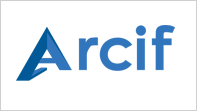challenges of using virtual and concurrent e-learning in the faculties of Sebha University
DOI:
https://doi.org/10.51984/johs.v19i3.1211Keywords:
Sebha city, E-learning, Sebha University, COVID-19 pandemic, LibyaAbstract
Because of technological development, the world has been able to face the variables of life and crises, especially those affect the continuation of the educational process, such as the current crisis "COVID-19 pandemic", which forced the world to move towards e-learning instead of traditional teaching. The present study investigated the challenges of using virtual and concurrent e-learning in the faculties of SebhaUniversity. Interviews and a questionnaires were used to collect the data using the descriptive, analytical approach and comparisons. Data were collected from several categories includes scientific affairs agents, quality officials, mechanization office officials, faculty members, and students. The results showed that a partial or total disparity were found between Sebha University colleges in terms of using e-learning with estimated an average of 22.22%, which falls within the average of concurrent virtual e-learning that use in the universities of Libya (i.e. 16-50%). The results confirm that the main challenges faces the virtual e-learning are the weakness of the Internet and power outages, as well as the lack of knowledge on how to use e-learning techniques among students and some faculty members. Also, the low income of students and parents is one of the problems that prevented from obtaining the e-learning requirements. Despite these challenges, the results confirmed that there is a desire to move towards virtual e-learning with a 90% acceptance rate for faculty of scientific affairs and quality in faculties, 100% by mechanization staff, and 91.2% by faculty members and 46.6% by students.
Downloads
Downloads
Published
Issue
Section
License
Journal of Humanities Policy on Intellectual Property and Plagiarism
1. Commitment to Intellectual Property and Ethics
The Journal of Humanities (JOHS) is fully committed to respecting intellectual property rights and aims to protect the originality and authentic work of authors who submit their manuscripts for publication. The journal takes a firm stand against articles that contain any form of plagiarism and emphasizes the need for all researchers to adhere to the highest ethical standards in scientific research.
2. Anti-Plagiarism Policy
The journal considers plagiarism a serious violation of academic ethics. Therefore, authors must ensure that their work is original and not plagiarized, and that any use of external sources is properly cited and documented according to correct academic standards.
-
Actions Taken: In the event that any plagiarism or academic theft is discovered in a submitted article, the editorial board will contact the author to request a formal explanation within a maximum period of two weeks from the date of notification.
-
Investigation and Decision: After receiving the explanation, the article will be referred to the journal's specialized committees, which will investigate the matter and take the necessary measures, which may include the permanent rejection of the article and the imposition of disciplinary actions.
3. Publication License and Author Rights
The journal adopts the Creative Commons license type Attribution-NonCommercial-NoDerivs 4.0 International (CC BY-NC-ND 4.0), which allows for the following:
-
Attribution: Users are entitled to cite the content published in the journal and use it in their work, provided that the original source and author are clearly credited.
-
Non-Commercial: The published content may not be used for any commercial purpose.
-
NoDerivs: It is not permitted to make any modifications, distortions, or to build derivative works from the published content.
Under this license, authors are required to complete an exclusive license agreement for the journal. Authors retain the rights to their research data and may reuse and share their work for scientific purposes with proper citation.







